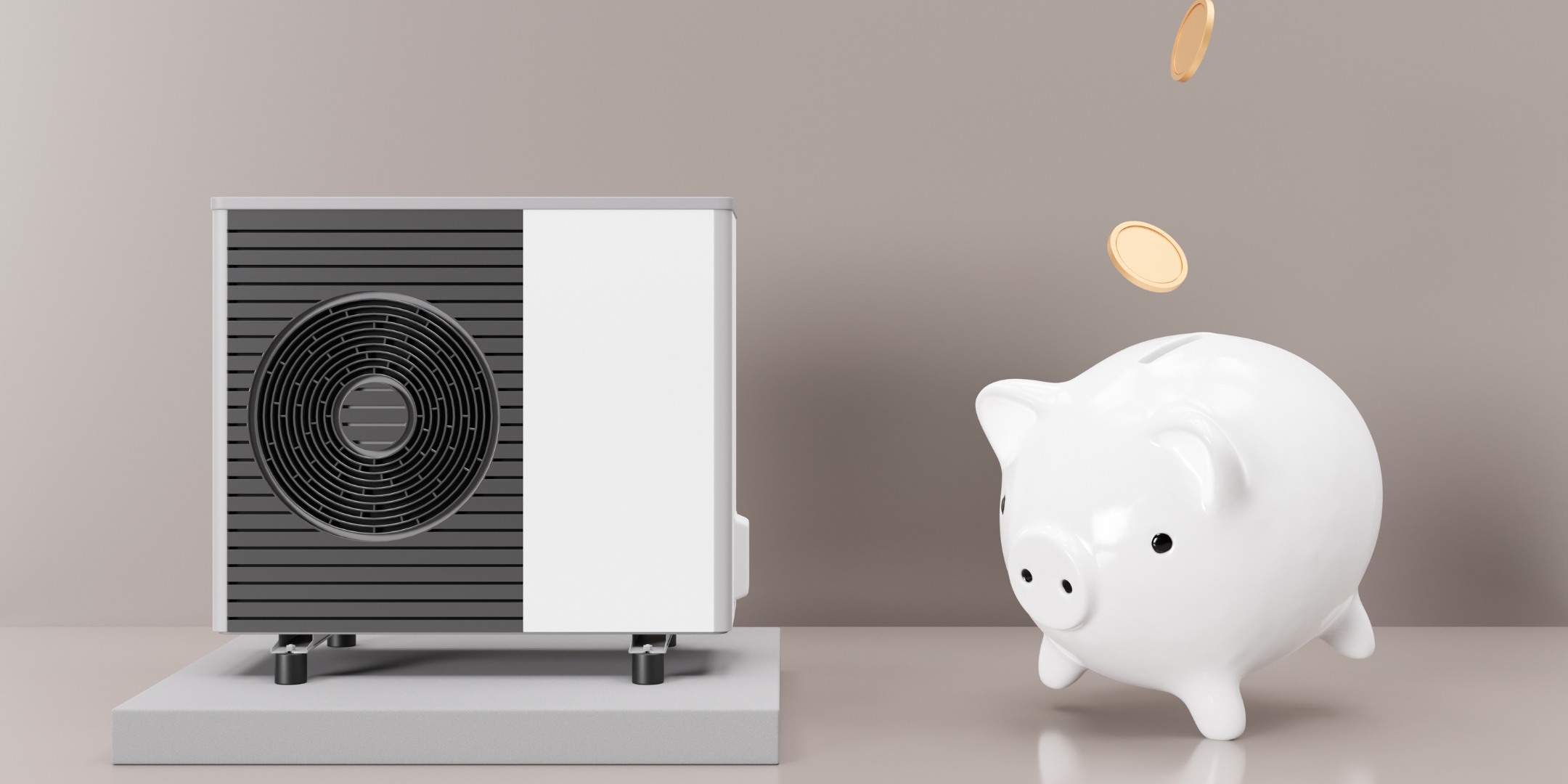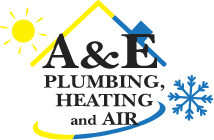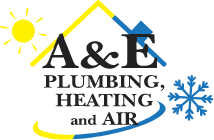
As a homeowner, you're constantly looking for ways to improve your home's efficiency and comfort. Whether you're battling the cold winters or trying to stay cool during the hot summers, you need a system that can handle both with ease. The challenge comes in finding a solution that not only meets these demands, but does so in a cost-effective and environmentally friendly manner. This is where the decision to invest in a heat pump becomes a pivotal moment for many Americans today.
Our team of A&E HVAC professionals is highly trained and experienced, equipped with the knowledge to guide you through every step of the decision-making process. We're not just service providers; we're partners in ensuring your home's climate control is efficient, reliable, and tailored to your specific needs.
Selecting the Right Heat Pump for a Home in Hood River or Gresham
-1.png?width=449&height=300&name=HUBSPOT%20IMAGE%20FORMAT%20(17)-1.png) Choosing the right heat pump for your Hood River or Gresham home is not just about immediate comfort; it's an investment towards significant long-term savings.
Choosing the right heat pump for your Hood River or Gresham home is not just about immediate comfort; it's an investment towards significant long-term savings.
High-efficiency options like geothermal and water-source heat pumps, though pricier upfront, stand out for their minimal electricity usage and superior heat transfer capabilities, promising substantial cost benefits over time. Balancing these initial costs against future savings is key.
With a variety of systems available, each boasting unique advantages tailored to different homes and climates, understanding your options is crucial. This knowledge enables you to select the ideal solution that keeps your Hood River/Gresham home comfortable throughout the year, all while considering the local weather patterns and your specific needs.
This is especially important in Hood River and Gresham, where winters can dip into the negative temps for weeks on end, especially at night. Our area requires a stronger, more efficient heat pump than our friends down South. A&E technicians are here to guide you through this decision-making process, ensuring your investment pays off in both comfort and savings.
Air-Source Heat Pumps: Efficiency and Versatility
Pros:
-1.png?width=320&height=213&name=HUBSPOT%20IMAGE%20FORMAT%20(7)-1.png) High Efficiency:
High Efficiency:
Air-source heat pumps excel in efficiency, delivering up to three times more heat energy than the electricity they consume. This remarkable efficiency is due to their heat transfer method, avoiding the energy-intensive combustion process.
Year-Round Climate Control:
Capable of both heating and cooling, air-source heat pumps provide a versatile solution for maintaining comfort throughout the seasons.
Considerations:
Climate Sensitivity:
Though generally efficient, their performance may decrease in extreme cold. However, advancements in technology have enhanced their effectiveness in colder climates, potentially making them a viable option for the varied temperatures in the Gresham/Hood River areas. Our technicians at A&E would be happy to talk with you and see if this solution would work for you.
Mini-Split Heat Pumps: Flexible and Ductless
Pros:
No Ductwork Required:
Ducts can lose energy because of leaks and heat transfer in unconditioned spaces. Mini-splits are perfect-1.png?width=415&height=277&name=HUBSPOT%20IMAGE%20FORMAT%20(8)-1.png) for homes lacking ductwork, for room additions, or areas requiring specific temperature control; mini-splits eliminate the energy losses associated with duct systems.
for homes lacking ductwork, for room additions, or areas requiring specific temperature control; mini-splits eliminate the energy losses associated with duct systems.
Zoned Comfort:
With the ability to control temperatures in individual zones or rooms due to the flexibility in where they can be placed, mini-splits offer personalized comfort and can contribute to overall energy savings.
Considerations:
Higher Initial Costs:
Installation can be more expensive up front, typically totaling between $8,000 and $16,000 in the Hood River area. This price increases if you need multiple units or have a particularly difficult installation.
Water-Source Heat Pumps: Utilizing Natural Resources
Pros:
Superior Efficiency:
By leveraging nearby water sources for heat transfer, these systems can outperform air-source pumps, especially in regions where water temperatures remain consistent. Water-source pumps maintain high efficiency ratings of 300–600%, even in cold conditions, because water temperatures remain relatively stable throughout the year, making heat transfer more efficient.
Reduced Environmental Footprint:
With water as a renewable resource, these systems offer an eco-friendly heating and cooling solution as opposed to systems that rely on standard house energy.
Considerations:
Accessibility:
Installation requires access to an appropriate water source, which may not be available for all properties.
Complexity and Maintenance:
These systems demand complex installation and ongoing maintenance to maintain efficiency and durability.
Geothermal Heat Pumps: Unmatched Efficiency and Longevity
Pros:
Peak Efficiency:
-1.png?width=396&height=264&name=HUBSPOT%20IMAGE%20FORMAT%20(9)-1.png) Utilizing the earth's stable temperatures, geothermal pumps offer unparalleled efficiency for heating, cooling, and sometimes even hot water.
Utilizing the earth's stable temperatures, geothermal pumps offer unparalleled efficiency for heating, cooling, and sometimes even hot water.
Durability:
With indoor components lasting up to 25 years and the underground loop system over 50 years, geothermal systems are a long-term investment in reliable home comfort.
Considerations:
Initial Investment:
The upfront cost, primarily due to the ground loop installation, is significant. This can range from anywhere between $10,000 - $20,000. However, this can be offset by saving between 30% and 60% on heating and cooling costs annually compared to traditional systems.
Oregon offers 3 big incentives to invest in these systems:
1. Energy Trust of Oregon Rebates: This program offers cash incentives for installing energy-efficient heating and cooling systems, including geothermal heat pumps. The specific rebate amounts can vary, but they're designed to make renewable energy options more accessible.
2. Federal Tax Credits: The U.S. government has offered tax credits for geothermal heat pump installations under the Residential Renewable Energy Tax Credit. This credit allows homeowners to deduct a significant percentage of the installation cost from their federal taxes, although the exact percentage can change with current legislation.
3. Oregon Department of Energy Tax Credits: While these can fluctuate, Oregon has historically offered state tax credits for renewable energy installations, including geothermal systems. These credits can further reduce the net cost.
Space Requirements:
A sufficient amount of land is necessary to accommodate the ground loop, posing a challenge for properties with limited space. On average, a geothermal pump needs approximately 7,500 square feet of land.
By carefully considering these options, homeowners can select a heat pump system that aligns with their efficiency goals, comfort preferences, and the specific demands of their living space. Each type of heat pump offers distinct advantages, and A&E can help you choose the perfect system for your Hood River or Gresham home.
Do I Need a Dual-Fuel System?
In climates with colder winters, a dual-fuel system may be necessary to maintain efficiency. We can assess your home's location and climate to determine if supplementing your heat pump with a furnace or boiler is the best route for you, ensuring comfort even when temperatures drop below 40 degrees Fahrenheit.
Choosing the Right Thermostat-1.png?width=445&height=297&name=HUBSPOT%20IMAGE%20FORMAT%20(10)-1.png)
The final piece of the puzzle is selecting a thermostat that complements your new heat pump and lifestyle. From standard to programmable, and even Wi-Fi thermostats that offer remote control and energy-usage analytics, we'll help you pick a control system that enhances your heat pump's efficiency and your convenience.
How A&E Heating Can Help Find Your Perfect Heat Pump
.jpg?width=477&height=268&name=A%26E%20Photos-43%20(1).jpg) Choosing the perfect heat pump for your Hood River or Gresham home, to ensure comfort through both the cold winters and hot summers, is a significant decision that impacts not just immediate comfort but also long-term savings.
Choosing the perfect heat pump for your Hood River or Gresham home, to ensure comfort through both the cold winters and hot summers, is a significant decision that impacts not just immediate comfort but also long-term savings.
Now that you know the pros and cons of some of the most popular heat pumps available, it’s time to reach out to one of A&E’s experienced technicians and discuss your home’s specific needs and preferences. We’ve been guiding homeowners like you through the process of selecting the right heat pump that aligns with your home's climate, layout, and budget for almost two decades. This includes assessing the suitability of air-source, mini-split, water-source, or geothermal heat pumps for your Hood River or Gresham home, considering installation costs, potential long-term savings, and available incentives.
Daphne Hunt holds a bachelor's degree in English and Mass Communication and has a lifelong passion for writing. She thrives on using her skills to craft compelling pieces that inform, inspire, and connect with readers.

